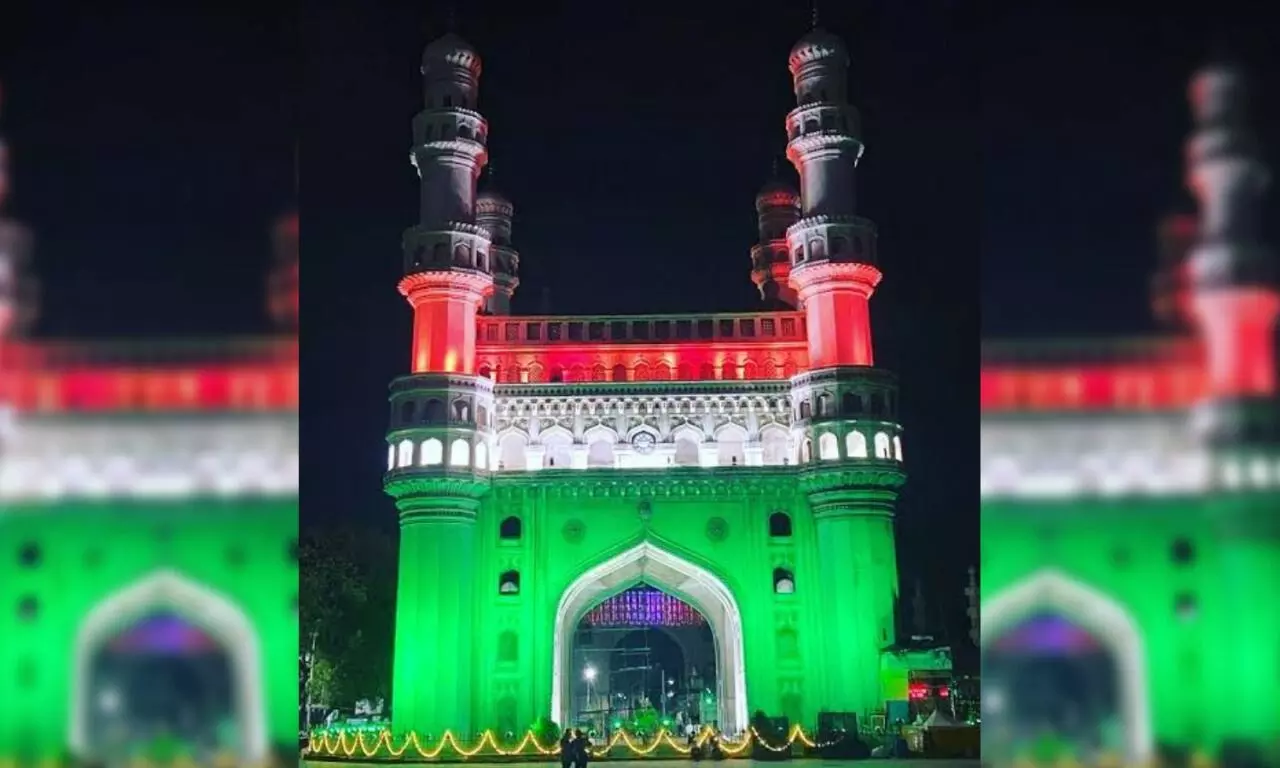Hyderabad Liberation Day: Suffering in common or act of forgetfulness
It is to forget the failure of implementation of the Gentlemen’s Agreement – Mulki rule; it is to forget that the Sunderlal report (estimates that as many as 2, 00,000 Hyderabadi-Muslims were slaughtered) was kept an official secret for over 60 years.
By Syed Ghiyas Uddin
Hyderabad: The BJP contextualizes present-day politics in the events of the pre-republic era of India. The celebration of September 17 as 'Liberation Day' by the Central Government (so do follow by the State Government) is to be read in the words of Ernest Renan, French orientalist, quoted by Dr. B.R Ambedkar: "To have common glories in the past, a common will in the present; to have done great things together; to will to do the like again-such are the essential conditions for the making of a people…. Suffering in common is the greater bond of union than joy." (Pakistan or Partition of India Pub. 1945).
BJP by this celebration intends to evoke the memories of the suffering of Hindus under the 7th Nizam from 1947-1948. The politics of September 17 is maneuvered to suit the communal politics of the BJP. It excludes the Muslim from the memories of suffering for the simple reason that Nizam happens to be Muslim.
Further Renan explains the importance of the role of forgetfulness as a factor in building up a nation. He writes: "Forgetfulness, and I shall even say historical error, form essential factors in the creation of the nation, and thus it is that the progress of historical studies may often be dangerous to nationality. Historical research brings back to light the deeds of violence that have taken place at the commencement of all political formations… unity is ever achieved by brutality." The celebration of September 17 is to forget the social cohesion that evolved during the Telangana movement.
It is to forget the failure of implementation of the Gentlemen's Agreement – Mulki rule; it is to forget that the Sunderlal report (estimates that as many as 2, 00,000 Hyderabadi-Muslims were slaughtered) was kept an official secret for over 60 years. It is to forget the martyr of 369 agitators who were shot by the government on 2 June 1969 for demanding Telangana state, it is to forget the various GOs issued by the government to safeguard intra-state reservations in government jobs only to be strike-down by the Constitutional Courts and list go on and on.
These acts of forgetfulness are nationwide and the people of Telangana are no exception. It will further strengthen the Hindu idea of India because all that was brutal, sorrowful, and unjust. It is desired to forget from the national memory except if the aggressor is Muslim. For the future polity of Telangana to be inclusive to sustain the idea of 'Unity in Diversity, it is time to forget and forgive the frictions of the past. As the political imagination of Muslim leadership in Telangana is not on finding pre-Constitution report viz. Sunderlal report, but it's on the 'idea of fraternity' that is enshrined in the Constitution. On the contrary, BJP's political imagination to celebrate September 17 as Liberation Day is to remember Pre-Constitution events & upheaval the communities at peace. Our Preamble says, 'fraternity assuring the dignity of individual and the unity & integrity of the Nation'. The political trajectory of Muslims in Telangana is defined by the Hindu imagination of Nizam's regime. How democratic is it, is the topic for another day? The shared memory of Nizam by the Hindu subjects is his association with Razakars in 1948. However, it is to belittle his contribution to what Hyderabad stands for.
Since its inception, Hyderabad was cosmopolitan. This was carried by the Asaf Jah's as E.L. Beverley writes in Hyderabad, British India, and the World Muslim Network and Minor Sovereignty c. 1850-1950 Pub. 2016: "Reports on Hyderabad State response to the worst of the Deccan Famine-that of 1876-1878-reveal a famine policy founded on political ethics distinct from that of British India. If deprivation or destruction of the livelihood of vulnerable communities instigated mass criminalization and persecution in British India, the evidence from Hyderabad suggests a different picture. Asaf Jah's famine policy envisioned a culture of social cohesion and mutual obligation in the countryside, even for new migrants, to offer land for grazing and cultivation as commons, and to prevent deprivation and criminalization of rural population."
Further, the execution of Kumaram Bhim, a Gond leader by the Nizam regime is apt to create friction as discussed in my previous article. However, this event can't leave abruptly without considering the Nizam policy. E.L. Beverley writes: "Hyderabad devised policies to improve the livelihoods of Adivasi (Gond) groups by granting formal landholdings, preventing alienation of land to non-Adivasi."
Whereas no formal land rights were granted in British Madras Presidency, the policy of granting Patta, a formal land title to Adivasi began in Adilabad in 1944. It was described as 'Haimendorf Patta' named after Christopher von Furer-Haimendorf, an Austrian anthropologist employed by the VII Nizam in response to studying the causes of the Tribal revolt. The narrative of the BJP that the Nizam era depicts the suffering in common by the Hindus is a myth with no substantial truth except it reflects the politics of confirmation bias against Muslims of India.
Disclaimer: Views expressed in the article are those of the author and not NewsMeter